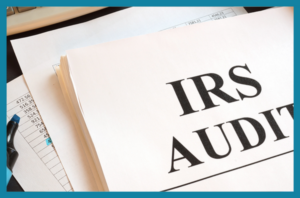What is an IRS Field Audit

How Does a Field Audit Differ from Other Types of Audits?
There are three main types of audits:
- A correspondence audit is conducted by mail.
- A service center (or office) audit is held in the local IRS or state tax department office.
- A field audit is in-person at a relevant location of the taxpayer’s as noted above.
A field audit is usually longer and more complicated than the other types. It may involve not only a review of the taxpayer’s financial records but also an inspection of the premises and interviews with employees in the case of field audits of businesses.
Notably, each type of audit has its own procedures and forms for notification.
Who Is Most Likely to Receive a Field Audit?
The IRS typically uses data and statistical formulas to identify tax returns for audit. A taxpayer’s return will be compared to data coming from other sources such as W-2s from employers or 1099 interest statements from banks.
The tax return will also be compared to returns of other similarly situated taxpayers. If the taxpayer’s reported revenue or expense information is outside the typical range, the return may be flagged for further review by auditors. Taxpayers may also be audited if they had dealings with another party who was or is being audited or if their return has certain common red flags or chosen as part of a random sampling.
Businesses and high-net-worth individuals are most likely to receive a field audit. Large corporations may be audited every year.
How Long Does a Field Audit Take?
Field audits take the longest because they involve a more extensive review of records as well as interviews with multiple parties. The initial appointment is usually scheduled within 14 to 21 days of the initial contact. The audit may take a day to a week at the location depending on the issues and the number of documents that must be reviewed.
How Do You Prepare for a Field Audit?
The IRS notifies taxpayers when they have been selected for a field audit. The notice will request a meeting and indicate what year is being audited and the records to have available for inspection by the auditor. These records should be gathered and organized for the auditor.
Taxpayers should consult a tax attorney for help preparing for the auditor’s visit and obtain guidance on how to respond to questions. If the audit involves a business, employees who may be interviewed regarding the business’s operations or processes should be given advance notice and assistance with preparing for the interview.
Can You Contest the Results of a Field Audit?
After the audit is concluded, Letter 915 will be sent to the taxpayer. There is a 30-day deadline to respond starting from the date on the letter. Taxpayers who disagree with the result can request a conference with an IRS manager, seek mediation or file an appeal if there is enough time remaining on the statute of limitations.
Do You Need a Tax Attorney to Assist You in a Field Audit?
Field audits are the most detailed and stressful types of audits. There are also strict rules and procedures. Further, auditors who conduct such audits are the most knowledgeable and skilled at reviewing documents and interviewing individuals. They may even specialize in certain industries. As such, a tax lawyer is a must to assist in responding, keeping the audit focused on the specific issues being investigated and avoiding statements that could prolong or expand the scope of the audit.
If you have received an audit notice letter or know that you owe back taxes, contact us for a consultation. We can help you determine the best way to respond and represent you in all aspects of the audit.


